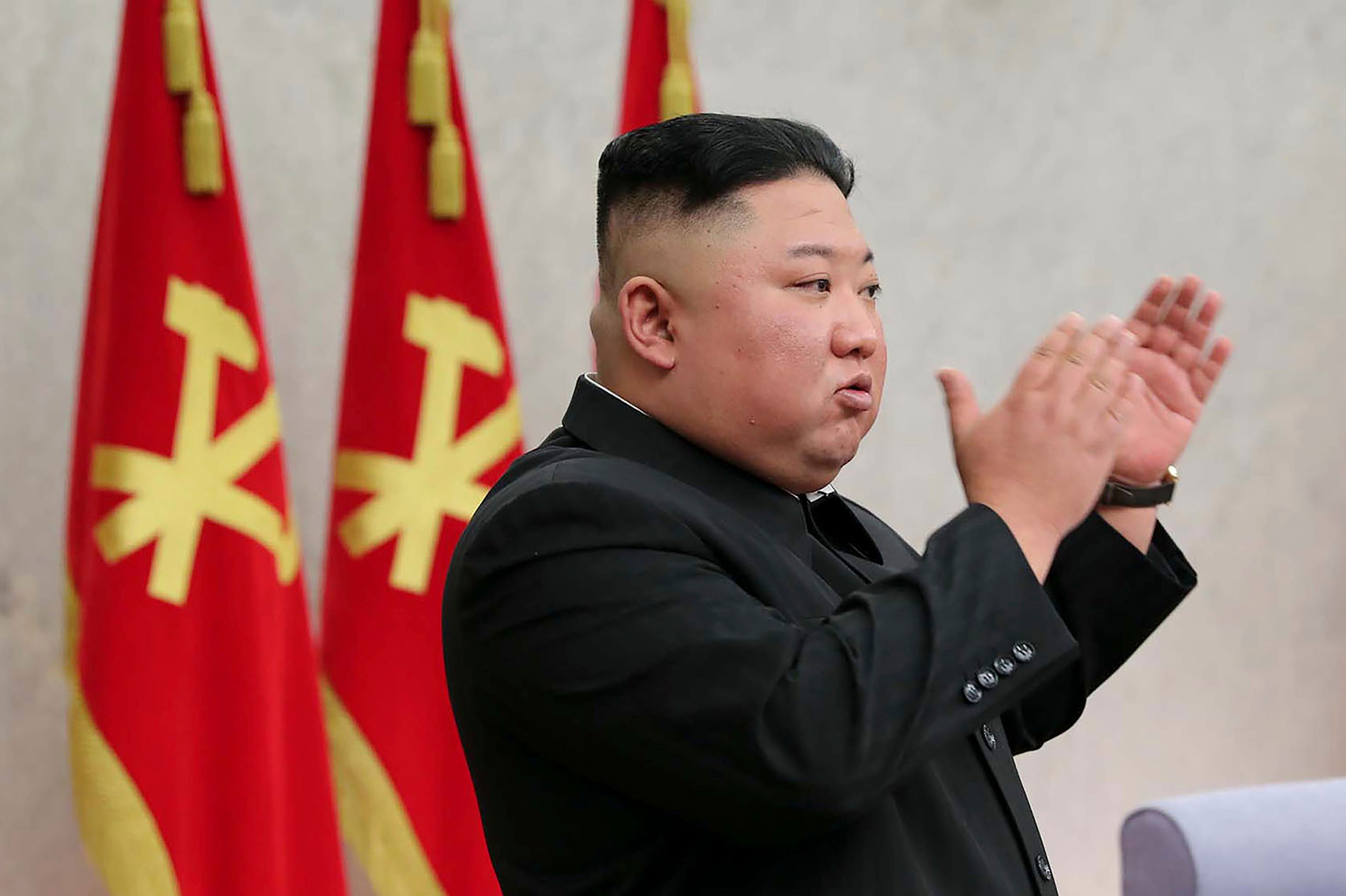UN experts say North Korea still modernizing nuclear arsenal
U.N. experts say North Korea has modernized its nuclear weapons and ballistic missile arsenals by flaunting United Nations sanctions and continues to seek material and technology overseas for use in these programs

U.N. experts say North Korea has modernized its nuclear weapons and ballistic missile arsenals by flaunting United Nations sanctions and continues to seek material and technology overseas for use in these programs.
The panel of experts monitoring sanctions on the reclusive northeast Asian nation said in a report sent to Security Council members Monday that Kim Jong Un’s government has also produced fissile material -- an essential ingredient for producing nuclear weapons -- and maintained its nuclear facilities.
“It displayed new short-range, medium-range, submarine-launched and intercontinental ballistic missile systems at military parades,“ the experts said. “It announced preparation for testing and production of new ballistic missile warheads and, development of tactical nuclear weapons ... and upgraded its ballistic missile infrastructure.“
The Security Council has imposed increasingly tough sanctions on the Democratic People’s Republic of Korea, the country’s official name, since its first nuclear test explosion in 2006. It has banned most of the country's exports and severely limited its imports, trying to pressure Pyongyang into abandoning its nuclear and ballistic missile programs.
But the report’s summary, obtained by The Associated Press, makes clear North Korea remains able to evade sanctions while developing its nuclear and missile programs, illicitly import refined petroleum, access international banking channels, and carry out “malicious cyber activities.”
The arsenal of North Korean leader Kim Jong Un emerged as a major threat to the United States and its Asian allies following tests in 2017 that included a detonation of a purported thermonuclear warhead and flight tests of ICBMs that demonstrated the potential to reach American territory.
A year later, Kim initiated diplomacy with South Korea and U.S. President Donald Trump, but it derailed in 2019 when the Americans rejected North Korea’s demands for major sanctions relief in exchange for a piecemeal deal partially surrendering its nuclear weapons capabilities.
Last year, North Korea’s already battered economy decayed further amid the COVID-19 pandemic which led Kim to close the country's borders. That severely limited the legal and illegal transfer of goods and movement of people, according to the experts.
Now, Kim must start all over again with President Joe Biden, who previously called him a “thug” and criticized Trump for summit spectacles instead of significant nuclear reductions.
In August 2019, the panel said, North Korean cyber experts illegally raised money for the country’s weapons of mass destruction programs “with total proceeds to date estimated at up to $2 billion.”
The panel said it investigated “malicious cyber activities” by North Korea’s primary intelligence agency, the Reconnaissance General Bureau, which is on the U.N. sanctions blacklist. It said those actions included “the targeting of virtual assets and virtual asset service providers, and attacks on defense companies.“
The experts said they also investigated attempted violations of the U.N. arms embargo, including illegal actions of blacklisted companies. They cited the Korea Mining Development Trading Corporation, alleged military cooperation by North Korea, and the use of the country’s overseas diplomatic missions for commercial purposes.
The panel said it also investigated “the country’s continued illicit import of refined petroleum, via direct deliveries and ship-to-ship transfers, using elaborate subterfuge.“
It cited images, data and calculations from an unidentified country showing that between Jan. 1 and Sept. 30 last year North Korea received shipments of refined petroleum products exceeding the annual ceiling of 500,000 barrels set by the Security Council “by several times.”
U.N. sanctions ban North Korean coal exports, and the panel said shipments of coal appear to have been largely suspended since late July 2020.
It said that last year, North Korea continued to transfer fishing rights in violation of sanctions, which earned the country $120 million in 2018, according to an unnamed member state.
Under a 2017 sanctions resolution, all North Korean nationals working overseas were to be repatriated by Dec. 22, 2019. The experts said they investigated North Korean workers earning income in sub-Saharan Africa as well as information technology workers dispatched by the Munitions Industry Department.
Bookmark popover
Removed from bookmarks